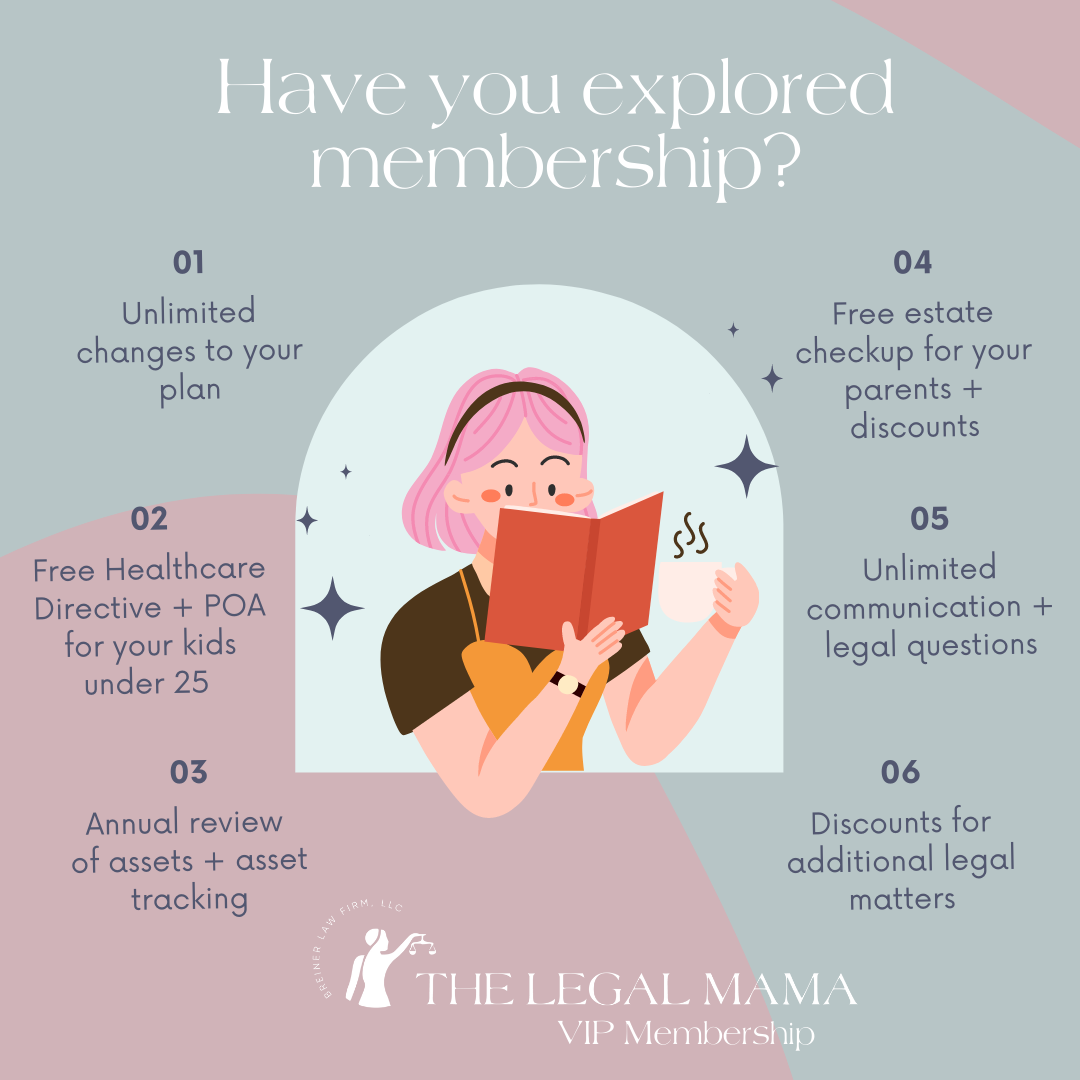How to Avoid 2 Common Causes for Estate Planning Disputes—Part 2
Dec 08, 2021
In the first part of this series, we discussed one of the most frequent causes for dispute over your estate plan. Here, we’ll look at another leading cause for dispute and tell you how to avoid it!
Let's be honest, most families have disagreements, disputes, or just plain drama even in the best of times. When considering what will happen to your estate when you die or if you become incapacitated, why leave it up to chance? This quick read can help you avoid uncomfortable family dynamics even if you're not around to play peacemaker.
No one wants to believe their family would ever end up battling one another in court over inheritance issues or a loved one’s life-saving medical treatment, but we see it all the time. This is especially true for those who rely on do-it-yourself estate planning documents found online. The good news is you can dramatically reduce the odds of such conflict by enlisting my support to assist you in creating your estate plan and explaining that plan to your family members. Even the best set of documents will be unable to anticipate and navigate the complex emotional dynamics that make up your life and family, but having a real person in your corner can!
Last week, we discussed one of the most common reasons for dispute, poor fiduciary selection, which involves selecting the wrong trustee, executor, or guardian for your kids. Today, we focus on the other leading cause for conflict: contests to the validity of your will and/or trust.
Contesting the validity of wills and trusts
The validity of your will and/or trust can be contested in court for a few different reasons. If the court decides that your will and/or trust is invalid, the document(s) effectively don't exist. Obviously, this would cause major problems for your intended beneficiaries.
However, just because someone disagrees with what they received in your will or trust doesn’t mean that person can contest it. Whether or not the individual agrees with the terms of your plan is irrelevant; it is your plan after all. Rather, they must prove that your plan is invalid (and should be thrown out) based on one or more of the following legal grounds:
- The document was improperly executed (signed, witnessed, and/or notarized) as required by state law.
- You did not have the necessary mental capacity at the time you created the document to understand what you were doing.
- Someone unduly influenced or coerced you into creating or changing the document.
- The document was procured by fraud.
Furthermore, only people with “legal standing” can contest your will or trust. Just because someone was intimately involved in your life, even if they’re a blood relative, doesn’t automatically mean they can legally contest your plan.
People with potential legal standing generally fall into two categories: 1) Family members who would inherit, or inherit more, under state law if you never created the document. 2) Beneficiaries (family, friends, and charities) named or given a larger bequest in a previous version of the document.
Solution
There are times when family members might contest your will and/or trust over legitimate concerns, such as if they believe you were tricked or coerced into changing your plan by a selfish caregiver. However, that’s not what we’re talking about here. Here, we’re talking about—and trying to prevent—contests that are brought by disgruntled family members and/or would-be beneficiaries trying to get more from your estate than you wanted. We’re also seeking to prevent contests that are a result of disagreements between members of blended families, particularly between spouses and children from a previous marriage.
First off, working with Legal Mama can save you most of this headache! I will make sure that everything you decide for your trust is strictly worded and documented and completely valid by the court system so there can be very little question of your intentions. This validation and accuracy is especially important if you're trying to disinherit or favor one part of your family over another.
Usually having a plan that benefits some children more than others, as well as when your plan benefits friends, unmarried domestic partners, and/or other individuals instead of, or in addition to, your family is the cause of conflicts. Conflict is also likely when you name a third-party trustee to manage an adult beneficiary’s inheritance because they are likely to be negatively affected by the sudden influx of money. In these cases, it’s vital to make sure your plan is properly created and maintained to ensure these individuals will not have any legal ground to contest your will or trust.
One way you can do this is to include clear language that you are making the choices laid out in your plan of your own free will, so no one will be able to challenge your wishes by claiming your incapacity or duress. Beyond having a sound plan in place, it’s also crucial that you clearly communicate your intentions to everyone affected by your will or trust while you’re still alive, rather than having them learn about it when you’re no longer around. I often recommend holding a family meeting (which I can help facilitate) to go over everything with all impacted parties.
Outside of contests by disgruntled loved ones, the potential for your will or trust to cause dispute is significantly increased if you have a blended family. If you are in a second (or more) marriage, with children from a prior marriage, there’s an inherent risk of dispute because your children and spouse often have conflicting interests.
To reduce the likelihood of dispute, it’s crucial that your plan contain clear and unambiguous terms spelling out the beneficiaries’ exact rights, along with the rights and responsibilities of executors and/or trustees. Such precise terms help ensure all parties know exactly what you intended.
If you have a blended family, it’s also essential that you meet with all affected parties while you’re still alive (and of sound mind) to clearly explain your wishes in person. Sharing your intentions and hopes for the future with your spouse and children is key to avoiding disagreements over your true wishes for them.
Prevent disputes before they happen
The best way to deal with estate planning disputes is to do everything possible to make sure they never occur in the first place. This means working with me to put a specific, clear, and concise plan in place aimed at caring for your loved ones and making sure they know how they will be effected. Maybe more importantly, it means constantly reviewing and updating your plan to keep it up to date with any changes that may occur. This can also be made easier and less expensive by looking in to Legal Mama's Membership! That way you'll be able to ask unlimited questions and make unlimited changes to your planning without ever paying an additional fee! Keep your family focused on what is most important, caring for each other, by making sure your estate plan is clear, concise, and stays up to date.
Today's article touches on how our membership options once you finish your planning can help you keep your plan up-to-date. Membership also offers loads of perks like unlimited communication on your legal needs and more. Just one more way Legal Mama goes above and beyond as your Personal Family Lawyer for Life!

Next ONLINE Webinar:
This article is a service of Sarah Breiner, Personal Family Lawyer®. We don’t just draft documents; we ensure you make informed and empowered decisions about life and death, for yourself and the people you love. That's why we offer a Family Wealth Planning Session,™ during which you will get more financially organized than you’ve ever been before, and make all the best choices for the people you love. What is a Personal Family Lawyer®? A lawyer who develops trusting relationships with families for life.
You can begin by contacting Sarah today to schedule a Family Wealth Planning Session.
Lorem ipsum dolor sit amet, consectetur adipiscing elit. Cras sed sapien quam. Sed dapibus est id enim facilisis, at posuere turpis adipiscing. Quisque sit amet dui dui.
Stay connected with news and updates!
Join our mailing list to receive the latest news and updates from our team.
Don't worry, your information will not be shared.
We hate SPAM. We will never sell your information, for any reason.







